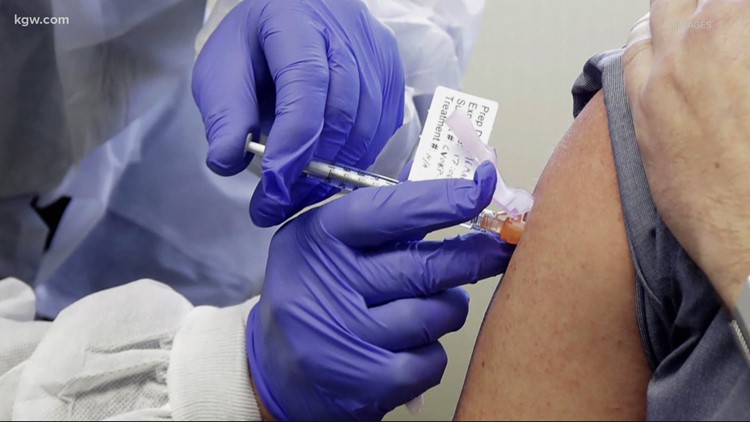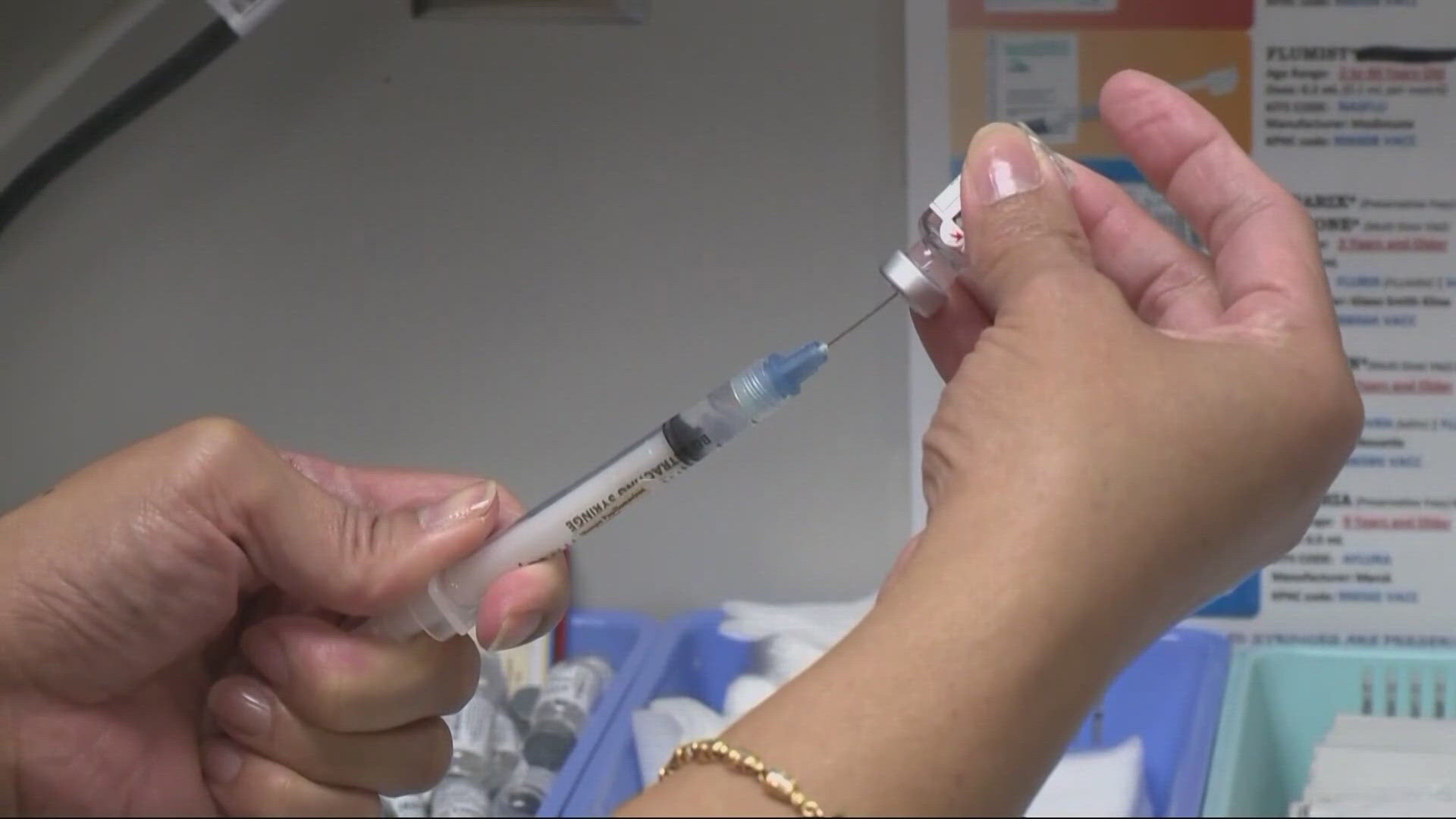PORTLAND, Ore — Oregon is expected to receive tens of thousands of coronavirus vaccine doses within days, pending the official emergency use authorization of the Pfizer vaccine from the U.S. Food and Drug Administration (FDA).
On Thursday, an advisory committee endorsed the Pfizer vaccine, and the FDA is expected to follow the recommendation in the following days and authorize widespread use of the vaccine.
A vaccine produced by Moderna will undergo the same review next week and is expected to be just as effective as the Pfizer vaccine.
If both the Pfizer and Moderna vaccines are approved, Oregon will receive a total of 147,950 first doses of the vaccines in mid-December, and another 80,450 second doses of the vaccine later in the month.
Here are the Oregon COVID-19 vaccine shipment dates:
- Dec. 15: 35,100 first doses of the Pfizer vaccine
- Dec. 22: 40,950 first doses of the Pfizer vaccine
- Dec. 22: 71,900 first doses of the Moderna vaccine
- Dec. 29: 48,750 second doses of the Pfizer vaccine
- Dec. 29: 31,700 second doses of the Moderna vaccine
The federal government has not told Oregon how many doses the state will receive in January and the months to come.
Who will receive vaccines first?
The Centers for Disease Control and Prevention (CDC) has urged states to prioritize health care workers and nursing home residents and caretakers in “Phase 1A” of vaccine distribution.
As part of Phase 1A, the Oregon Health Authority (OHA) said that the first vaccines will go to every hospital in Oregon, as well as emergency medical service providers and long-term care facilities.
Oregon will prioritize employees with the most direct exposure to COVID-19 and those critical for maintaining hospital capacity, like nurses and staff of intensive care units and emergency departments. Allocations are based upon how many people are in each county and each provider’s storage capacity, along with other health equity considerations.
The specific allocations have yet to be released, though Legacy Health in Portland said that it expects to receive about 2,000 doses of the Pfizer vaccine this weekend. The VA Portland Health Care System also announced Thursday it was selected as one of 37 Veterans Affairs hospitals nationwide to distribute initial vaccine doses.
Since the COVID-19 vaccines can potentially cause flu-like side effects for one to two days after inoculation, Oregon will make sure to stagger vaccination among employees to reduce possible staffing shortages.
So far, no Oregon medical providers have mandated that employees get vaccines, though this could happen in the future once the vaccines have official FDA authorization instead of emergency use approval.
In this first phase, Oregon will also allocate vaccines to caretakers and residents of long-term care facilities. The federal government has partnered with pharmacies, like Walgreens and CVS, to manage this process.
All of Oregon’s long-term care facilities are signed up for this program, though only some of these facilities will receive vaccines initially, according to the OHA.
Those deemed “skilled nursing facilities,” where residents receive constant medical care, will receive 10,725 doses of Oregon’s first batch of the Pfizer vaccine. Other assisted living facilities will receive vaccines later on, when Oregon has a higher number of doses.
How will the vaccines be stored?
Both vaccines need to be kept cold before they are distributed, but the Pfizer vaccine — which will arrive first — needs ultra-cold storage, between minus 70 and 80 degrees Celsius.
Currently, Oregon has some ultra-cold freezers around the state and is competing with other states to get more. OHA said that Oregon currently has the storage capabilities to distribute the first wave of vaccines.
In January, the state will establish nine regional hubs of major hospitals that can receive and store the Pfizer vaccine. Those hubs will then share those vaccines regionally to be kept in regular refrigerators, where the Pfizer vaccine can be kept for up to five days.
The regional hub hospitals have yet to be announced.
The Moderna vaccine, if approved, will be much easier to distribute, as it can be stored in a regular refrigerator for up to 30 days. More rural communities will likely get the Moderna vaccine, while urban areas with larger care providers will get the Pfizer vaccine due to better infrastructure for keeping the doses very cold.
What’s next?
After vaccines reach all health care workers, emergency service providers and long-term care facility residents and caretakers, next in line are essential workers and others disproportionately affected by the virus.
An advisory committee for the CDC and a committee in Oregon will meet in January to decide who exactly is an essential worker. OHA said that groups like seasonal farm workers, teachers and childcare workers will likely fall into this category.
The state expects to set up vaccination sites for farm workers and other workplace groups.
The vaccines will not reach the general population until the end of March at the earliest, though OHA was unable to estimate any specific dates at this time.



